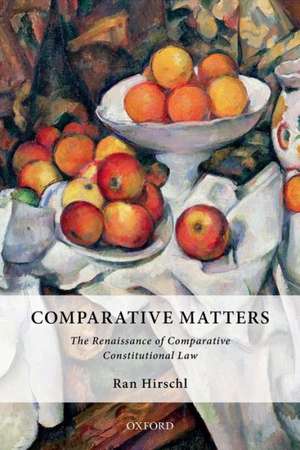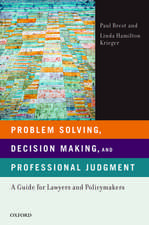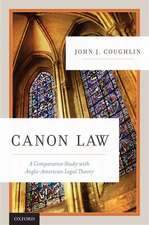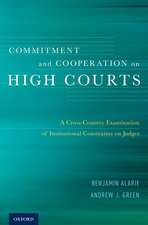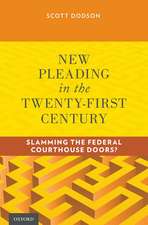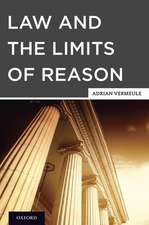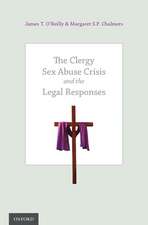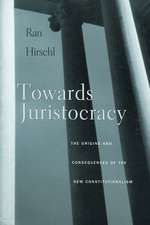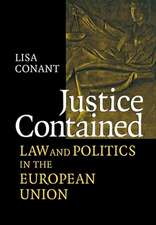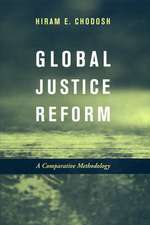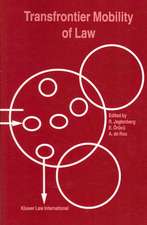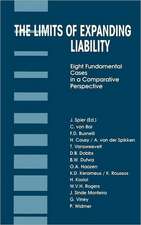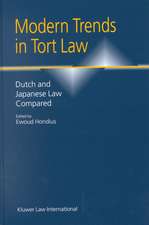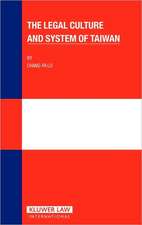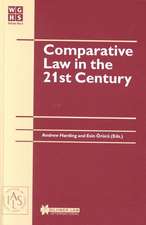Comparative Matters: The Renaissance of Comparative Constitutional Law
Autor Ran Hirschlen Limba Engleză Hardback – 14 aug 2014
| Toate formatele și edițiile | Preț | Express |
|---|---|---|
| Paperback (1) | 184.61 lei 31-37 zile | |
| OUP OXFORD – 3 mar 2016 | 184.61 lei 31-37 zile | |
| Hardback (1) | 420.91 lei 6-8 săpt. | |
| OUP OXFORD – 14 aug 2014 | 420.91 lei 6-8 săpt. |
Preț: 420.91 lei
Preț vechi: 495.19 lei
-15% Nou
Puncte Express: 631
Preț estimativ în valută:
80.57€ • 87.54$ • 67.72£
80.57€ • 87.54$ • 67.72£
Carte tipărită la comandă
Livrare economică 21 aprilie-05 mai
Preluare comenzi: 021 569.72.76
Specificații
ISBN-13: 9780198714514
ISBN-10: 0198714513
Pagini: 318
Dimensiuni: 163 x 241 x 22 mm
Greutate: 0.63 kg
Editura: OUP OXFORD
Colecția OUP Oxford
Locul publicării:Oxford, United Kingdom
ISBN-10: 0198714513
Pagini: 318
Dimensiuni: 163 x 241 x 22 mm
Greutate: 0.63 kg
Editura: OUP OXFORD
Colecția OUP Oxford
Locul publicării:Oxford, United Kingdom
Recenzii
He - as elegant in his writings as convincing in his argumentation - invites the comparative lawyer to proceed methodologically beyond legal doctrine stricto sensu. Knowing that an age of legal pluralism requires a diverse and interdisciplinary, rather than rigorous but disciplinarily limited, methodology, one should follow this stimulating invitation with an open mind... Hirschls book sets an inspiring agenda for further research and gives proof that a roadmap can also be a masterpiece.
A book of dazzling scope and depth. At once a methodological manifesto and a sweeping intellectual history, Hirschl reminds us that our contemporary debates about universality and particularity in law are simply new variations on a very old theme. This is an instant classic, from which no one will fail to learn something new.
Ran Hirschl solidifies his position at the apex of students of comparative constitutional law. Both his range and depth of interests are remarkable. Every page has insights; it would be a pleasure to assign in courses and seminars, not only for the discussions it will surely provoke, but also for the plethora of papers, dissertations, and books it will surely inspire.
Comparative Matters is a sharp reminder that law is too important a matter to leave in the hands and minds of lawyers. It is also a sharp reminder that comparative law, properly understood, is, can be and should be more than, yes, comparative law. It is a window to, and a tool for, an understanding of the political, the social, indeed, the human condition itself. Finally it is a gentle reminder that comparative 'law' would be a very different field absent the voice of Ran Hirschl.
Comparative Matters truly matters, for if indeed we are now entering the "era of comparative law," we will need instruction and guidance in both the sources for, and possible futures of, this exciting renewal of intellectual exploration. In this wonderful book Ran Hirschl demonstrates that he is uniquely qualified to fill this role. By tracing contemporary debates and challenges in comparative constitutionalism to classical antecedents, he clears the path for a "renaissance" of methodologically and analytically diverse scholarly inquiry into the multifarious ways in which societies might choose to organize themselves constitutionally. In so doing he exemplifies the very transcendence towards which the book is devoted; thus the reach of his learning and the catholicity of his inter-disciplinary applications are precisely what are required for the successful evolution from comparative constitutional law to comparative constitutional studies.
A book of dazzling scope and depth. At once a methodological manifesto and a sweeping intellectual history, Hirschl reminds us that our contemporary debates about universality and particularity in law are simply new variations on a very old theme. This is an instant classic, from which no one will fail to learn something new.
Ran Hirschl solidifies his position at the apex of students of comparative constitutional law. Both his range and depth of interests are remarkable. Every page has insights; it would be a pleasure to assign in courses and seminars, not only for the discussions it will surely provoke, but also for the plethora of papers, dissertations, and books it will surely inspire.
Comparative Matters is a sharp reminder that law is too important a matter to leave in the hands and minds of lawyers. It is also a sharp reminder that comparative law, properly understood, is, can be and should be more than, yes, comparative law. It is a window to, and a tool for, an understanding of the political, the social, indeed, the human condition itself. Finally it is a gentle reminder that comparative 'law' would be a very different field absent the voice of Ran Hirschl.
Comparative Matters truly matters, for if indeed we are now entering the "era of comparative law," we will need instruction and guidance in both the sources for, and possible futures of, this exciting renewal of intellectual exploration. In this wonderful book Ran Hirschl demonstrates that he is uniquely qualified to fill this role. By tracing contemporary debates and challenges in comparative constitutionalism to classical antecedents, he clears the path for a "renaissance" of methodologically and analytically diverse scholarly inquiry into the multifarious ways in which societies might choose to organize themselves constitutionally. In so doing he exemplifies the very transcendence towards which the book is devoted; thus the reach of his learning and the catholicity of his inter-disciplinary applications are precisely what are required for the successful evolution from comparative constitutional law to comparative constitutional studies.
Notă biografică
Ran Hirschl (PhD, Yale) is Professor of Political Science and Law, and holder of the Canada Research Chair in Constitutionalism, Democracy and Development at the University of Toronto. He is the author of three books: 'Towards Juristocracy: The Origins and Consequences of the New Constitutionalism' (Harvard University Press, 2004 and 2007), 'Constitutional Theocracy' (Harvard University Press, 2010) (which won the Mahoney Prize in Legal Theory), and 'Comparative Matters' (Oxford University Press, 2014), as well as over 75 articles and book chapters on comparative constitutional law, constitutional law and religion, and the intellectual history of comparative public law. Hirschl is a founding executive committee member of the International Society of Public Law, an editorial board member of the Journal of Law & Courts and the International Journal of Constitutional Law (I-CON), and the co-editor of a book series on comparative constitutional law and policy published by Cambridge UP.
